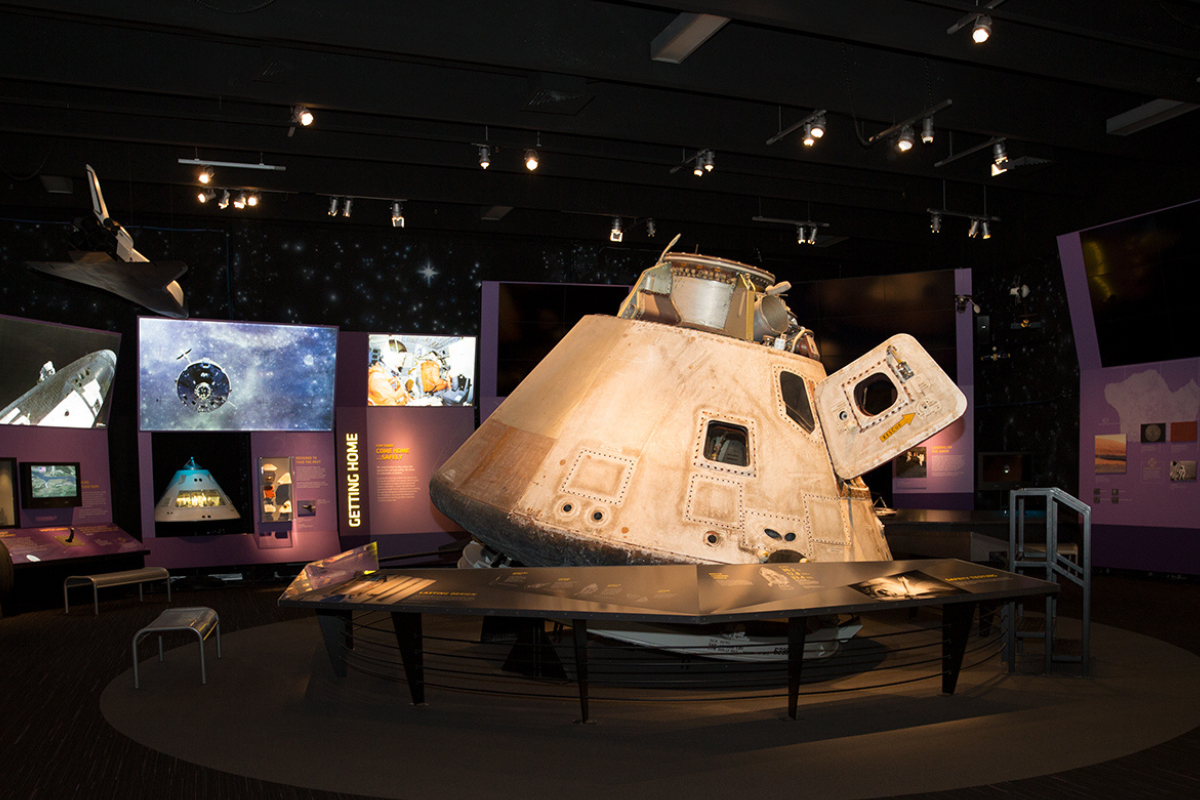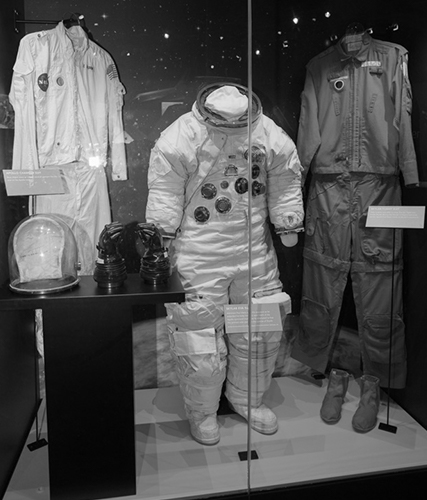CLEVELAND (September 8, 2023) – Join Great Lakes Science Center for a 50th anniversary Splashdown Celebration in honor of the Apollo Command Module on display in the NASA Glenn Visitor Center!
The celebration runs from 10 a.m. to 5 p.m. on Saturday, September 23, featuring free general admission for all guests and a visit from Jack R. Lousma, one of the astronauts who flew on the command module’s mission!
Retired astronaut and Marine Corps pilot Col. Jack R. Lousma was the pilot on board the Apollo Command Module when it docked with the Skylab space station in the summer of 1973. Guests can hear him recount some of his experiences, including his splashdown in the capsule on September 25, 1973, during a Capsule Chat at 11 a.m. on Saturday, September 23 at the Science Center. Lousma will also be greeting guests during a meet and greet session at 1 p.m.
Guests can take advantage of free general admission to the Science Center all day on Saturday, September 23 in honor of the event.
Skylab helped pave the way for the International Space Station by conducting experiments and other operations in low-Earth orbit during three crewed missions over the course of 1973-74.
About Great Lakes Science Center
Great Lakes Science Center is one of the top ten museums in the nation as celebrated by the 2023 USA Today 10Best Readers’ Choice travel award for Best Science Museum. The Science Center is home to the NASA Glenn Visitor Center and makes science, technology, engineering and math (STEM) come alive for more than 300,000 visitors a year through hundreds of hands-on exhibits, temporary exhibitions, the Cleveland Clinic DOME Theater, historic Steamship William G. Mather, daily science demonstrations, seasonal camps, and more. The Science Center, a 501(c)(3) non-profit institution, earned a 2023 Platinum Seal of Transparency from Candid, a leading provider of insight and data about the non-profit world. The Science Center is supported in part by the residents of Cuyahoga County through a public grant from Cuyahoga Arts & Culture. Visit GreatScience.com for more information.



